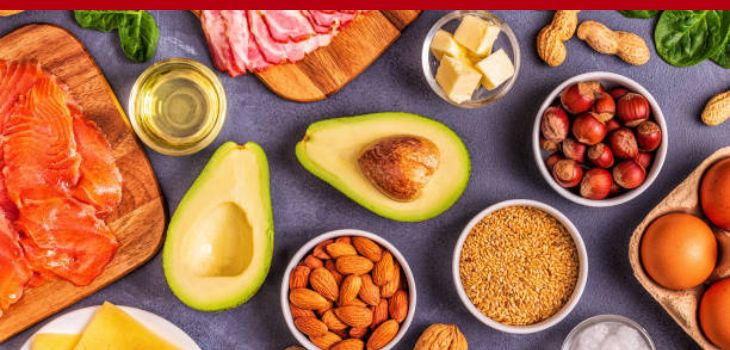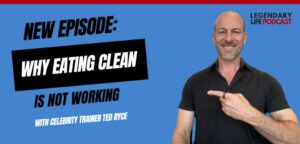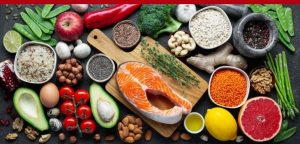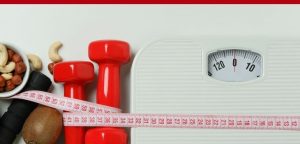by Ted Ryce
Ted Talk 152: I Followed a Low-Carb Diet for Over 10 Years. It Was a Mistake (And Here's What I'd Do Differently)
by Ted Ryce
by Ted Ryce
Ted Talk 152: I Followed a Low-Carb Diet for Over 10 Years. It Was a Mistake (And Here's What I'd Do Differently)
Ted Talk 152: I Followed a Low-Carb Diet for Over 10 Years. It Was a Mistake (And Here's What I'd Do Differently)
more
by Ted Ryce
Ted Talk 152: I Followed a Low-Carb Diet for Over 10 Years. It Was a Mistake (And Here's What I'd Do Differently)
In the late 90s and early 2000s, the fitness industry surrendered at the feet of low-carb diets. After Dr. Atkins updated his book published in 1972, dieticians and fitness gurus agreed that cutting carbs was the most effective way of losing fat and keeping it off.
The truth is the diet worked, but time showed that erasing carbs from people’s diets was potentially dangerous for their health and incredibly hard to maintain in the long haul. After all, can you imagine living your life without eating a slice of pizza ever again?
So, after all these years, what do we know about low-carb diets? Are they efficient, and most importantly, are they sustainable?
In today’s Ted Talk episode, Ted shares his experiences with the low-carb diets he followed for over 10 years, his results, and what he thinks of them. He delves into the research that backed up low-carb’s fever in the 90s and why it made sense to him then.
He also explains why he believes we should pay more attention to calories, the best way to do it, and his favorite methods to track calorie consumption. Listen now!
You’ll learn:
- How to determine if avoiding carbs will help us or not
- What are the types of food that will make you gain weight
- Pros and cons of following low-carb diets
- The best ways to track calories and protein consumption
- The number one thing to do to lose weight and keep it off
- The type of foods you should eat to lose weight
- Is it possible to eat the foods we love and still lose fat?
- And much more…
Related Episodes:
497: What’s The Best Diet For You with Ted Ryce
445: The Most Effective Diet For Weight Loss with Ted Ryce
Ted Talk 82: Help! Why Am I Not Losing Weight On A Low Carb Diet?
Links Mentioned:
Watch our Body Breakthrough Masterclass
Schedule a 15 mins strategy call
Learn more about our success stories
Do You Need Help Creating A Lean Energetic Body And Still Enjoy Life?
We help successful entrepreneurs, executives, and other high-performers burn fat, transform their bodies, and grow successful businesses while enjoying their social life, vacations, and lifestyle.
If you’re ready to have the body you deserve, look and feel younger, and say goodbye to time-consuming workouts and crazy diets, we can help you.
Go to legendarylifeprogram.com/free to watch my FREE Body Breakthrough Masterclass.
Podcast Transcription: I Followed a Low-Carb Diet for Over 10 Years. It Was a Mistake (And Here's What I'd Do Differently)
Ted Ryce: I followed a low-carb diet for over 10 years. And let me tell you something, it was a mistake. And in today's podcast, I want to talk to you about what I’d do differently if I could go back in time and start again. What is up, my friend? And welcome back to the Legendary Life podcast. I am your host, Ted Ryce, health expert and coached entrepreneurs, executives and other high-performing professionals.
And back in 1999, when I first got into the fitness industry, I started a low-carb diet. And like I said, it was a mistake. Now I will get into the things that I did differently. But before I do that, I do want to give you some context here, I want you to understand that I've been down this road and been down this road for years.
And I want you to understand what happened, what it led to, so that you can learn from my mistakes. If you happen to be in a low-carb diet right now and you're like, “Wow, it's so great. I'm losing weight, but oh, it kind of sucks too, because I just want to eat some damn bread, or maybe a banana,” you're going to want to listen to this episode.
And I want you to pay attention to the context. So, I listened to the gurus at the time; there wasn't podcasts or YouTube or social media or any of that. But there were websites. And there were people to learn from, there were books, there were magazines. I was reading Muscle Media 2000, in case anybody was into that at the time.
Great magazine for the time, although later looking back, it was, eh, not so great. But again, for the time, it was awesome. And there was one major theme when it came to diet and fat loss, low-carb diets were the best. And the reason was carbs were responsible for making you fat. It wasn't about calories. It was about hormones, specifically insulin.
And when you ate carbs, insulin went up, fat storage went up. And when insulin was down, fat storage stopped. So, you can eat 80,000 calories from olive oil, and lard and no problem. At least that was what they were saying. But if you just ate a little bit of carbs, it would ruin everything, you would get fat from it.
And unfortunately, for me, I bought into it. There was actually research, even though I wasn't good at reading research at the time, but there was research that had been showing low-carb diets were better than low-fat diets for fat loss. What we eventually realized is that it was protein that was the major needle mover and it had nothing to do with low-carbs and fat.
How do we know this? Well, they tested low-carb diets and low-fat diets at the same calories, low-carb diets did better for fat loss. But then some smart person said, hey, you know what, low-carb people actually eat more protein. So, they're eating the same amount of calories in these studies, but their protein intake is much higher.
Let's compare low-carb and low-fat diets not just with the same calories, but also with the same amount of protein. And you know what happened? Same fat loss, no difference. And the big thing that I ended up learning, and it was so hard for me to learn this, because I had to unprogram all the things that I learned.
And that belief was, any food will make you fat if you eat too many calories of it. That's what I believe now. That's what I know now, any food. What about my green juice? It's healthy, isn't it? Listen, there's a difference between whether food is healthy or not and how many calories it has.
So, if you're going to ask me, hey, is it better to eat 300 calories of French fries or better to drink 300 calories of a green juice. Actually, there's more nuance there than you might imagine. But I would pick the green juice. Again, more nuance there. That's what the long pause here—I'm like, hmm, trying to do the math in my head.
But I think I’d go with the green juice still. There's a lot of nuances in nutrition. But one thing there is no nuance about is this. If you eat too many calories of any food, you will get fat from doing it. So, if you too many calories from— everyone knows, well, Oreo cookies, ice cream, dessert pizza, which I had yesterday, regular pizza.
Yes, but also grass-fed beef. Oh, but I had a grass-fed ribeye. It has healthy fats in it. Yeah, you ate 1000 calories. You do that a couple times a day, you're going to get fat. Same thing with green juice, same thing with nuts, same thing with any of the healthy choices that you could come up with.
Well, what about this? Yes. What about this? Yes. It's just yes, yes, yes. It doesn't matter. If you eat too many calories of it, you will get fat. I wish I learned this lesson earlier. Because what happened to me was that I was following the low-carb diet.
I was doing a lot of jujitsu, three to five times a week competitions, lifting weights, also three times a week, two to three times a week, probably, from what I can remember. And I was in shape, I was lean, but it was because my calories were in check, and I was doing a lot of exercise.
And when I came away from that, because my body was getting beat up, and I also needed to focus on growing my business, I started getting fat. And what happened to me is what I see a lot of people saying, they say, oh, maybe my metabolism is broken. Maybe my hormones are a mess. Maybe I'm too old. Maybe my genes are bad.
No, you're eating too many calories. And I say this now with such conviction, but at the time, I thought my metabolism was broken. I thought my hormones were screwed up. When I was in my mid-30s. I didn't understand, I didn't know what was happening. But I finally figured it out.
So, what I want to tell you is this: if I had to go back and do it again, here's what I would do. Number one, I’d go back and track my calories with My Fitness Pal. The big lesson that I learned from this is most people have no clue how many calories they're eating per day. They're making healthy choices are unhealthy choices.
And there's nothing wrong with that level of operation, that mental model of nutrition. But it's not going to get you so far. If you're currently making a lot of healthy choices, at least that's what you feel you're doing, but you're overweight or obese, you're over eating calories. And so you're not healthy.
If you're obese, if you're overweight, you're not healthy. You're the opposite. I got that way. I was 24% body fat, almost obese, and my blood sugar was high. My cholesterol was a mess, it was high too. And, man, I felt like garbage.
And I didn't like the way I looked in the mirror and I thought I was getting old. But when I started tracking my calories with My Fitness Pal, I started to realize, oh, I can have an eight-ounce chicken breast and that's a couple of 100 calories, a lot of protein and I feel full from it.
Or I could have 300 calories of a croissant, chocolate croissant and I could feel like I could eat a whole meal after that. And you might say, “Well, croissant’s carbs, Ted.” Another thing I learned from tracking is that a lot of the foods that we say are carbs, actually have more calories coming from fat.
Croissants being one of them. Ice cream being another, “Oh, ice cream is just carbs.” No, it's not just sugar. No, it's not. It's mostly fat, especially if we're talking about Haagen Daz. This is personally my favorite caramel cone. Too many calories coming from fat.
And so tracking your calories starts to teach you what the calorie content of your food choices. And what does this do? Number one, well, it shows you how many calories you're eating per day. Or it gets you an idea because it's not an exact measurement, but it gives you an idea, because most people don't know. In fact, it goes something like this. “I'm not eating that much, Ted, I don't know why I'm not losing fat.” “Okay, well, let's start tracking your calories.”
And then they come back. They're like, “How am I eating so many damn calories?” Easy to do, especially if you're snacking or having foods that don't help you feel full. The other thing that tracking with My Fitness Pal does is it starts to show you trends. Once you start tracking, you will learn that some foods have a lot of calories but don't fill you up, like I just talked about now.
And other foods don't contain many calories at all, but leave you feeling full. And that's why people hate the calorie thing so much, is because it's like a bit confusing. You feel like a handful of M&Ms, a croissant, a little bit of ice cream, and you feel like I barely ate anything. In fact, how do I know I barely ate anything? Because I'm starving right now. It's like I ate these things. I'm still hungry.
In reality, you ate 1000 calories. And now you're going to go eat a meal. Because the snacking the M&Ms the croissant, and the ice cream didn't fill you up. Another thing you start learning is that you can have a bowl of oatmeal, or let's say a potato, either one, whatever you're into.
And it can be let's say 200 calories for a 45 grams—sorry for the metric system, but 45 grams serving, and you can put, let's say, a half a stick of butter in it and it doesn't help you feel more full, but it makes it tastes more delicious and it adds a shit ton more calories. And so you're eating way more calories.
The food tastes better, but it doesn't make you full. So that's the second thing that tracking your calories can help you with, is like you start to realize, wow, why am I eating so many damn calories on these days versus the other days? And you start to see like, foods have different effects on your appetite. In fact, the foods that have the highest calories, tend to be the least satiating.
Now, the next thing I would tell you to do is to upgrade to premium on My Fitness Pal. No, they're not sponsoring the podcast, but it will cost you 70 bucks for the year, I don't see any of that money. All right, but it's worth it. And I'll tell you why. You're not only going to track the total calories, but also the protein.
And as I talked about earlier, when I was comparing the studies done on low-carb versus low-fat, and it was really the protein that made the difference. Well, now with Premium My Fitness Pal, which, this is what I do with myself, and this is what I do with my clients, we focus on the grams of protein.
Don't worry about the carbs, don't worry about the fat. Focus on—which brings us to our third step, is the third thing I do differently, is only focus on total calories and protein, get rid of that low-carb/low-fat conversation in your head or with other people. Don't even talk to people about it. It's wrong. It's so wrong. It's like people try to argue with me, I'm like, “Listen, there is one person who is 100% certain about this, and it's not you, okay?”
And I hate to say things like—not hate, I like saying things like that, if I'm honest. But I want to put it in context for you. Because I really care about you and your success. And the way I say that. I mean, just, you’ve got to watch out for people. Because what they tell you, they sound so confident when they say it, and they're fucking wrong.
And when I say this, I know I sound confident saying this. And I could be wrong too. But what I wanted to tell you is this, go test this stuff, go download My Fitness Pal, upgrade to premium focus on total calories and protein. Don't worry about the carbs, don't worry about the fat, let them fall where they may and see the results. And that's the difference.
I don't argue or talk that way, because I need you to believe the same thing that I believe. I don't need you to do that. I get paid for doing that. My clients pay me thousands of dollars to be in my coaching program to tell them that. I'm here telling you right now for free. And I don't even want you to listen to me, I want you to test it. I want you to test it.
Because, again, even if you're on a low-carb diet, let's say that you're listening to this and you're on a low carb diet, and you're just like, “No, Ted, low carb is the way, man.” Okay, cool. It's the way for you, got it. Most people? No! I think most people, at least the ones that I attract, they want to go eat some carbs.
And what I would tell you is this: even if you're doing a carnivore diet, even if you're doing a low-carb diet, track your calories and you can do a better job. That's what I love about tracking so much, by the way, it is agnostic, it is a diet agnostic, it's not about hitting a certain gram of carbs—totally meaningless.
And actually, there is a consequence for going too low with carbs or too low with fat for that matter. And certainly, too low with protein. But what I will tell you is this, once you start tracking, you can dial things in the way you want. Because here's the reality. Some days, I skipped meals, i.e. intermittent fasting, some days I don't. Most days, I don't these days.
Some days I high fat. I went to Steak Bowl, which is a Brazilian steakhouse the other day with some friends. All I ate was meat and some salad. And some days I eat like I did last night, I had pizza and a dessert pizza. And the pizza wasn't so huge. I ate three slices and then two slices of dessert pizza, which was one too many, to be honest.
But now I know I did it. I was able to…And I'll even share you a little bonus here. So, you can do what you want when you understand the calories thing and once you understand it’s total calories and daily protein, right? And the other thing is this: you can start to calorie-budget.
So, I went over my budget last night, so I'm dialing it in today. I had three slices of pizza as I said, two slices of dessert pizza. I don't even want to describe it. It was so crazy, the dessert pizza. All right, I'll tell you a little bit, it was dough with cheese, bananas, sugar, and then dulce de leche, so caramel sauce over it and like, the South American caramel sauce. If you've never tried it, it’s freakin amazingly delicious.
And totally went over my budget. And just like anything when you go over your budget where you start to save a little bit, well, I spent a lot of money on this thing, so I got to save a little on the other things that I'm wanting to buy. I’ve got to wait.
Same thing with your diet, overspent on my calorie budget last night, keeping it leaner today and not only is this good for you, not only is this helpful for you to have meals that you enjoy. And again, I'm not looking to really enjoy my breakfast and lunch today, I'm going to be recording podcast episodes all day. That's the main goal today.
But what it does also is it helps you with your health. So, when you overeat like that, and then you go lean, you keep it low calorie the next day, but again, I don't feel like skipping any meals, I just want to keep it lower calorie, it allows me to eat. So, I will feel full, I won't feel hungry, and I’ll also feel more healthy.
So those are all the benefits. That's what I would do differently. And those are the benefits of tracking. And it can change the game for you. It can change your life. It's not for everybody. I think everybody would benefit from it. But it does take time to learn, it does.
It's learning a new skill, it’s not as easy as looking at your plate saying, “Oh, those are carbs, let's get rid of them.” It's more nuanced, right? But if you're a person who already has been doing some diets, and you've lost and gained the same 20 pounds, maybe 3, 4, 5, 10 times, and the main reason that's happened is because it was too strict for you, maybe this might be the breakthrough that you're looking for. That's what I would suggest.
So that is it for me today. I hope you enjoyed today's episode. And if you're on Twitter, like me, let's keep the conversation going. Did you start tracking? How did it go for you? I want you to take action on what you heard today. I don't want you to believe me and take it into, you know, and start arguing with your low-carb friends about this.
I want you to go take this information, get results with it, and then have your low-carb friends ask you, just like they asked my clients. “Hey, listen, how are you losing so much weight and I see that you're eating carbs? I don't understand. How are you so lean and you're still eating carbs? I don't get it.”
And be careful what you tell them, because…. Yeah. Anyway, but if you want to keep the conversation going reach out to me @ted_ryce on Twitter. So, at T-E-D underscore R-Y-C-E. Let's keep the conversation going. Let me know what happened, what were your results, what were your challenges? Would love to hear from you, all right? Have an amazing week, and I'll speak to you soon.
Sign up to receive email updates
Enter your name and email address below and I'll send you periodic updates about the podcast.









